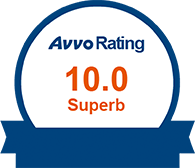Types of Immigration Relief
Voluntary Departure
Under 8 U.S.C. 1229c, the attorney general may permit an immigrant voluntary departure. If granted, the immigrant will be required to leave the United States within 120 days. The benefit to the immigrant is that he or she will avoid an order of deportation and will immediately be eligible to return to the United States if they are eligible for a visa or green card.
If an individual accepts voluntary departure, however, he forfeits his right to seek immigration relief and appeal his or her case. However, not everyone is eligible for voluntary departure. For example, if you have been convicted of an aggravated felony or are a national security risk, you are not eligible. In addition, voluntary departure is completely discretionary and is determined on a case by case basis.
Voluntary departure is generally advantageous only if the individual is not eligible for any type of immigration relief and should not be accepted without a consultation from a qualified immigration attorney.
Cancellation of Removal
Under Federal Statute 8 U.S.C. 1229b, cancellation of removal is available to both legal permanent residents and undocumented immigrants.
For legal permanent residents to qualify for cancellation of removal, they must prove that prior to the NTA or their criminal conviction, the following statements applied:
- They have been a lawful permanent resident for five years
- They resided continuously in the United States for a minimum of seven years
- They have not been convicted of an aggravated felony
- They are deserving of discretionary relief
For undocumented immigrants to qualify for cancellation of removal, they must prove that prior to the NTA or their criminal conviction, the following statements were applicable:
- They have resided in the United States continuously for a minimum of 10 years
- They have been a person of good moral character during that period
- They have not been convicted of an offense under 1182(a)(2), 1227(a)(2), or 1227(a)(3)
- They can establish that their removal would result in exceptional and extremely unusual hardship to the person’s spouse, parent, or child who is a United States citizen
Cancellation of removal is an excellent form of immigration relief. An order granting cancellation of removal cancels the deportation of a legal permanent resident. Even better, an order of cancellation of removal for undocumented immigrants adjusts their status to a legal permanent resident.
Adjustment of Status
In some cases, undocumented immigrants can prevent removal from the United States by adjusting status to a legal permanent resident. The most common form of status adjustment is through an “immediate relative” who is a United States citizen. An immediate relative is a spouse of a U.S. citizen, an unmarried child under 21 years of age of a U.S. citizen, or the parent of a U.S. citizen who is at least 21 years of age.
An individual applying for adjustment of status has the burden of proving to the immigration judge that he or she is eligible. Specific documentation must be filed with USCIS and the court to satisfy the burden to adjust status. An individual hearing may be required to prove the legal relationship is valid. This is especially true in cases where the individual is attempting to adjust status through a United States citizen spouse.
Normally, the applicant for adjustment of status has the burden of proving “it is more likely than not” the relationship is real. However, if the marriage was entered into during removal proceedings, the applicant must prove by “clear and convincing” evidence that the relationship was real. Proof of the relationship requires detailed testimony and supporting documentation especially if the marriage was entered into during removal proceedings.
VAWA Cancellation
The Violence Against Women Act or “VAWA,” was enacted to protect domestic violence victims who are subject to removal from the United States.
To qualify for VAWA Cancellation, an individual must satisfy all of the following:
- Subjected to battery or extreme cruelty by a U.S. citizen or lawful permanent resident spouse or parent
- Physically present in the U.S. for three or more years prior to the issuance of the NTA
- A person of good moral character during such period
- A person whose removal would result in extreme hardship to themselves, their children, or their parents
- Certain criminal convictions do not bar them from receiving relief
The key determination in any VAWA claim is whether the individual was the subject of battery or extreme cruelty at the hands of a U.S. citizen or lawful permanent resident spouse or parent.
In the past, many individuals have made fraudulent VAWA claims to avoid deportation and receive immigration status. Therefore, this claim should generally be supported by corroborating evidence such as witness testimony, affidavits, police reports, injunctions, or other relevant evidence.
Asylum
Asylum is available for most individuals who have a credible fear that they will be persecuted if deported to their home country based on their race, religion, nationality, membership in a particular social group, or political opinion. An individual must apply for asylum within one year of entering the United States. The threshold question in any asylum defense is the credibility of the respondent. While testimony alone can be sufficient to win an asylum claim, generally corroborated evidence such as affidavits, documents, and country condition reports are necessary. The benefit of winning an asylum claim is that you will not be deported, you can receive employment authorization after 180 days, and you can eventually obtain a green card for yourself and your family.
Some individuals are not eligible for asylum including:
- Any immigrant who ordered, incited, assisted, or otherwise participated in the persecution of any person on account of race, religion, nationality, membership in a particular social group, or political opinion
- Any immigrant who has been convicted of a particularly serious crime
- Any immigrant who has committed a serious nonpolitical crime outside of the United States
- Any immigrant where there are reasonable grounds to believe that the immigrant is a danger to the security of the United States
- Any immigrant who has been involved in terrorist activity
- Any immigrant who was firmly resettled in another country prior to arrival in the United States
Withholding of Removal
Withholding of removal is a type of immigration relief that is granted based on the exact same factors as an asylum claim.
However, instead of simply proving a credible fear like an asylum claim, the applicant must show that “it is more likely than not” that an individual will be persecuted if removed to their home country based on:
- Race
- Religion
- Nationality
- Membership in a particular social group
- Political opinion
This is a much higher burden than an asylum claim. Withholding of removal applicants are subject to the same bars as asylum applicants but are not eligible for the same benefits. The main benefit to being granted withholding of removal is that it will prevent deportation to your home country. However, withholding of removal does not give an individual a path to a green card or citizenship.
Convention against Torture
Relief under the convention against torture is even less advantageous than asylum or withholding of removal. To qualify, an applicant must prove that “it is more likely than not” that he or she will be tortured if returned to their home country by the government or at the acquiescence of the government. The only benefit conferred to an applicant who is granted relief under the convention against torture is that he or she will not be deported to the country where he or she could be tortured. However, the applicant might not receive immigration status or be released from custody, and could still be deported to a third country.
The only advantage of applying for relief under the convention against torture, rather than asylum or withholding of removal, is that the applicant is not subject to the same bars for relief. For example, you can apply for relief under the convention against torture even if you have been convicted of a “particularly serious crime.”
Prosecutorial Discretion
Prosecutorial discretion refers to the ability of ICE to terminate removal proceedings unilaterally without immigration relief necessarily being granted. You must make a formal request for prosecutorial discretion.
The deportation officer or the attorney for DHS will then make a determination whether to grant the request after weighing the positive and negative factors of the individual’s situation. These factors are outlined in a June 17, 2011 memo from ICE. However, these factors could be subject to change based on policy changes by the Trump Administration.
Some factors considered include :
- Criminal history
- Length of presence in the United States
- Family in the United States
- Military service
- The person’s immigration history
- Whether the person poses a risk to national security
- The person’s medical history or his family’s medical history
- Whether the person is cooperating as a witness for the government
- Whether the person is eligible for immigration relief
The advantage of prosecutorial discretion is that the government would allow the individual to remain in the United States. The disadvantage of prosecutorial discretion is that it does not confer any additional benefits such as legal permanent residency or employment authorization. Requests for prosecutorial discretion should be analyzed on a case-by-case basis in light of the person’s specific situation and what immigration relief is available.
Experienced Immigration Legal Counsel with Hubbs Law, P.A.
If you have a friend or a family member in Florida who is currently in removal proceedings, you should contact Hubbs Law Firm immediately. Our founding attorney, E.J. Hubbs, is experienced in both immigration and criminal law. His unique experience in both areas of the law can assist you in defending your friend or relative against deportation from the United States. You may be eligible for certain types of immigration relief but must seek help.
At Hubbs Law Firm, our team can discuss all aspects of your case with you and inform you of any immigration relief or defenses that might be applicable to your friend or family member’s case. We represent immigration clients in Miami and throughout Miami-Dade County, including Hialeah, Miami Gardens, Miami Beach, North and South Miami, Homestead, Kendall, and anywhere else in the area.
Call our deportation and removal attorney in Miami today to schedule your consultation at (305) 570-4802.
Additional Resources
- U.S. Immigration and Customs Enforcement –Visit the website of the U.S. Immigration and Customs Enforcement agency to find out more about Krome’s facility. The ICE enforces statutes on immigration enforcement and terrorism. Also, find ICE contact information, visiting hours, bond information, and more.
- U.S. Department of Justice - Visit the website of the U.S. Department of Justice to find more information about immigration courts at Krome Detention Center and at the Miami Immigration Court location in South Miami. The DOJ protects against foreign and domestic threats and interprets immigration laws. Also, find information on the immigration board of appeals.
- Department of Homeland Security – Visit the website of the Department of Homeland Security to find out more about locating a family member in ICE custody. The Department of Homeland Security provides updates on DHS and ICE immigration policies. Also, find locations for DHS offices of the Chief Counsel.















